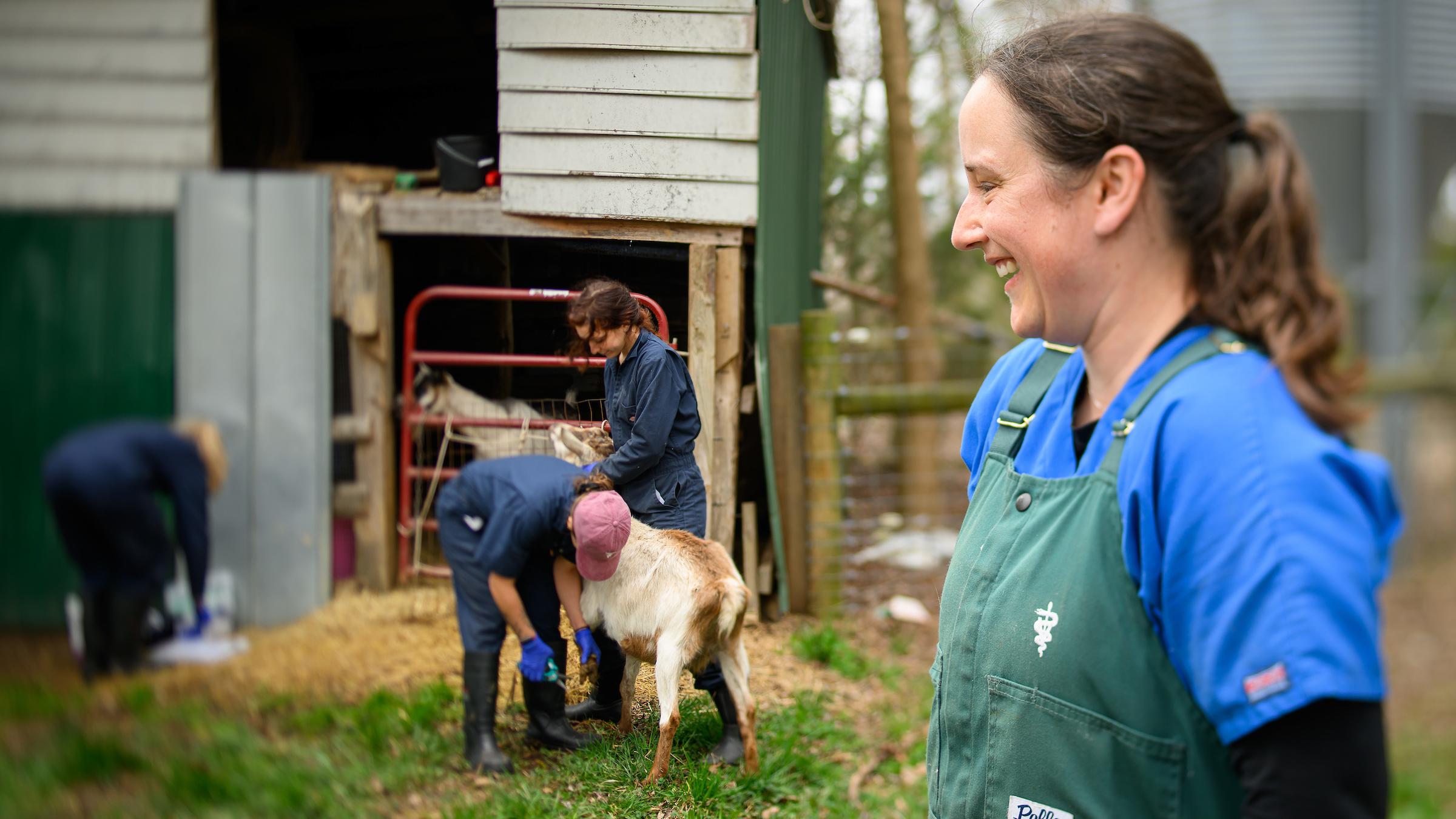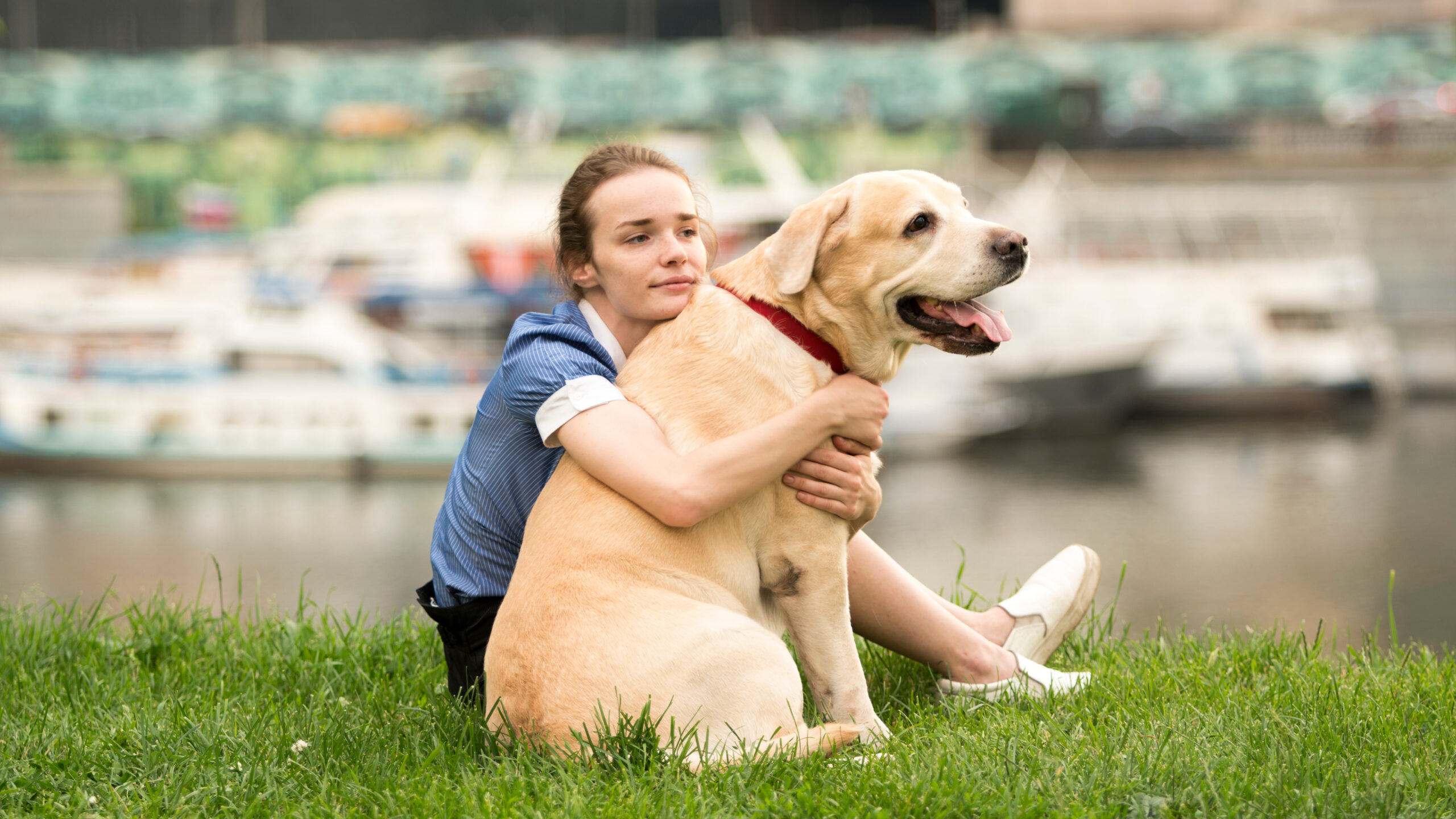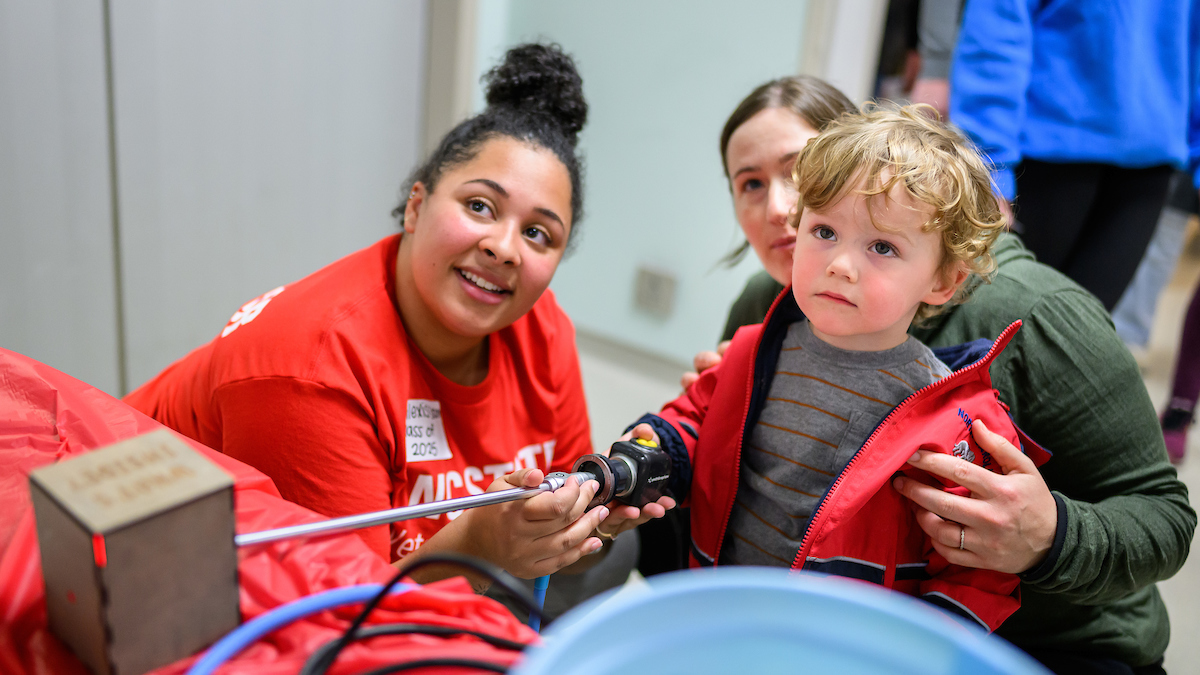‘Why Didn’t Someone Do This Sooner?’
Korinn Saker, NC State's board-certified veterinary nutritionist, helped devise a system that could revolutionize liquid nutrition for critically ill animals.
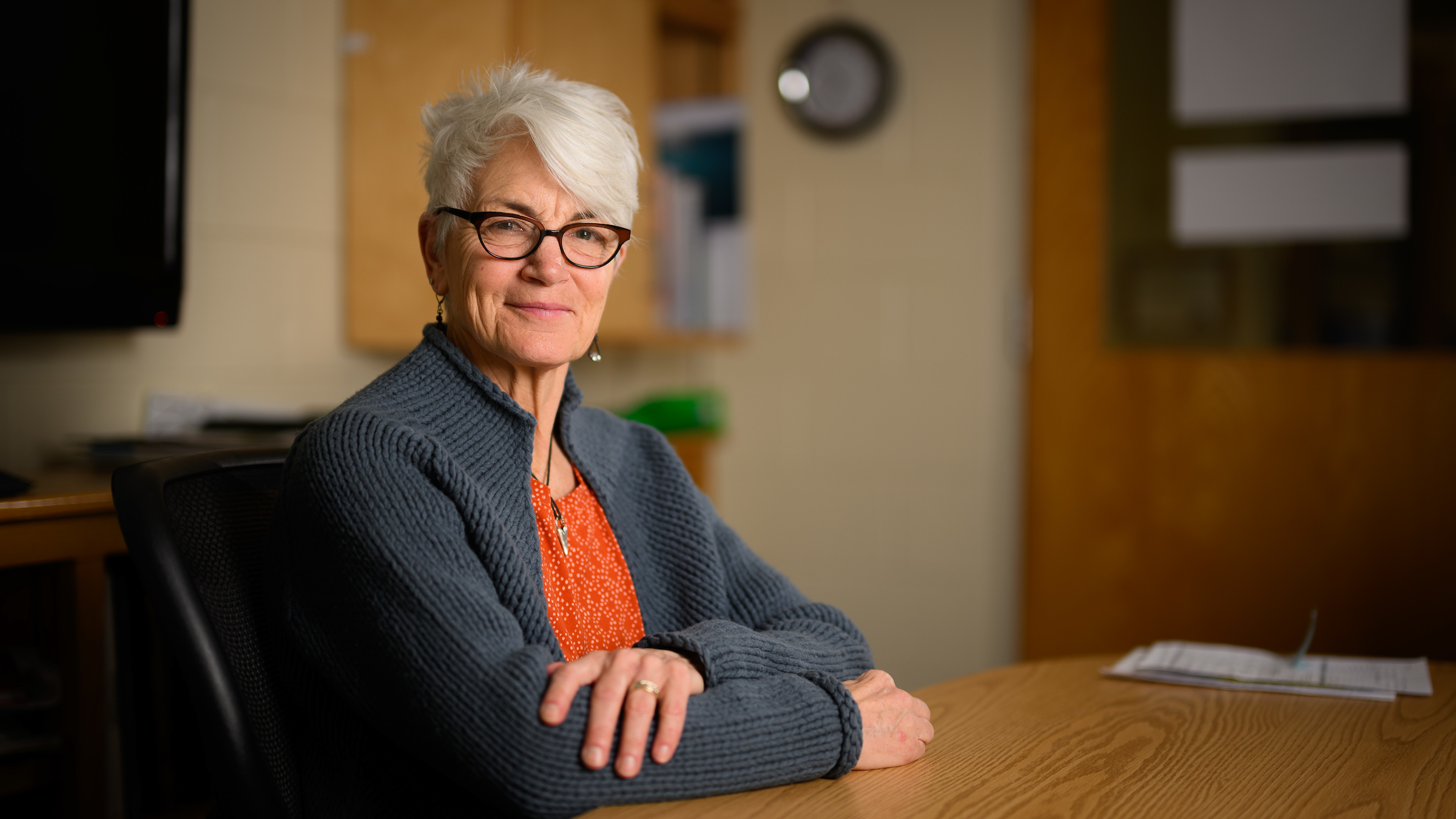
Korinn Saker had a novel idea.
The professor of nutrition at the NC State College of Veterinary Medicine was frustrated that liquid food products on the market were expensive and not customizable to the critically ill animals and orphaned puppies and kittens she treats.
“The formulation is rarely right,” says Saker, one of fewer than 100 board-certified veterinary nutritionists in the country. “You can’t use just one food. You have to mix one with two others to get what you need regarding proteins, fats and carbohydrates and calories. The goal is to try and match nutrients in the diet to the disease state to better manage the condition but also give animals the calories they need every day.”
Often, veterinarians resort to watering down regular pet food to the consistency a feeding tube or syringe requires, she says.
Saker envisioned using a computer program that would let veterinarians answer questions about a particular patient – disease state, weight, age – and get in return a liquid diet formula based on the animal’s specific needs.
“One comment we get a lot is, why didn’t someone do this sooner?” says Jeff Sutherland, CEO of Canine Biologics in Colorado and dog lover who worked with Saker to make her idea a reality. “The state of the art in liquid nutrition hadn’t changed in six decades.”
The system Sutherland named NutriDapt TM | Adaptive Liquid Nutrition hit the market July 1.
In addition to the computer program that Sutherland designed that customizes a diet, the system includes the food in two powdered parts and an oil – a powdered base and protein boost and a fat oil boost – that can be added together and mixed with water to provide each patient the most helpful balance of nutrients and calories.
But first Saker had to do all of the calculations of any possible combination of answers to come up with feeding plans that were safe and appropriately addressed the animals’ needs.
“I created a base diet for dogs based on the most restrictive disease process in regards to nutrients,” Saker says. “I started with a kidney diet, low protein, restricted in phosphorus and sodium with a lot of calories per meal. From there, you would adjust the base by adding a certain number of grams, increase protein if needed or increase the fat content.”
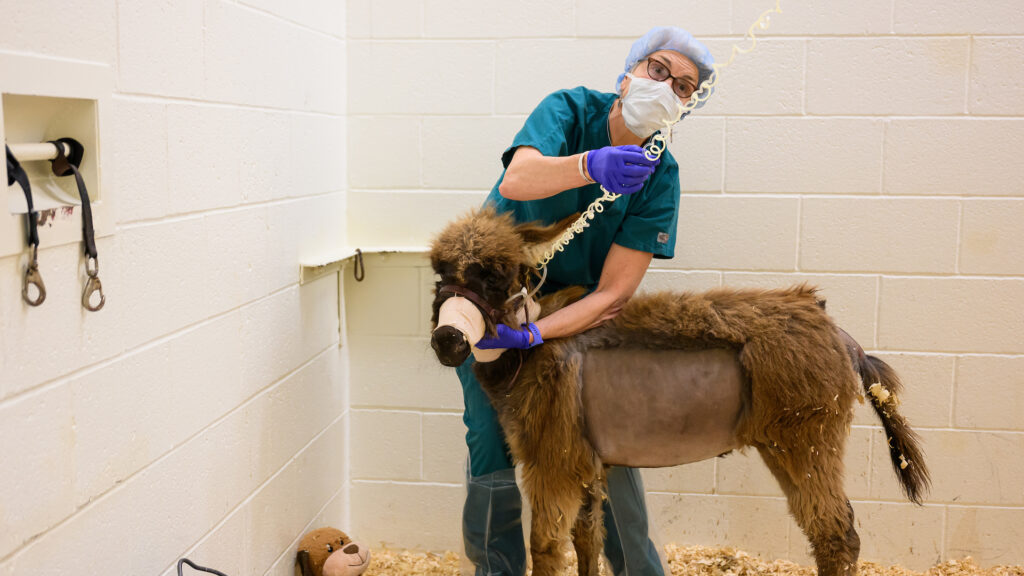
The other major products on the market have fixed levels of fat and protein.
“Some of them are easy to use, but they mostly have low energy density, and some are quite expensive,” Sutherland says. “We like to say, ‘These are OK for some patients but not the best for any.’”
The leading liquid product can cost $40 a day for a 40-pound dog, Sutherland says. NutriDapt’s completely custom liquid diet would be less than $24 for the same dog. In addition, NutriDapt allows veterinarians to make enough food for one meal or for a whole day’s worth of feedings instead of having to open a premixed liquid that might not be fully needed.
Now, NutriDapt also is available for cats, whose diets require more protein than dogs.
Saker and Sutherland have worked together before on devising nutrition plans for ailing animals.
About a decade ago, Sutherland was trying to design a specialized nutrition system to support dogs with cancer and reached out to Saker for help.
Sutherland’s dog Shadow had had severe gastrointestinal issues that he eventually attributed to common dog food because, once he began to prepare human food for Shadow, the dog’s symptoms disappeared. Wanting to share what he learned with other pet families, Sutherland created Deserving Dog in 2011, offering fresh, human-grade food for dogs through boutique pet stores in Colorado.
Through his business, Sutherland met veterinarian Scott Hafeman, and the two chatted about the role nutrition plays in overall animal wellness and in healing, specifically in dogs with cancer. Hafeman, who received his DVM from Colorado State University and completed an internship at the NC State College of Veterinary Medicine in 2007, also has a Ph.D. in tumor immunology.
“We wondered whether we could create this three-component system with human-grade food, salmon oil with the right mix of Omega 3 and 6 fatty acids and then a supplement that would include all the nutrients to make it a safe, balanced diet for dogs battling cancer,” Sutherland says. “We also added compounds that help either with the immune system or guard against the side effects of cancer treatments.”
Sutherland researched the oil component, and Hafeman worked on the proprietary supplement. But they needed someone to determine what should be in the food. Hafeman remembered Saker from his NC State internship days, and they contacted her.
“I developed a base diet, formulated it, and he figured out where to get ingredients that go into the diet at a cost that the end product was not cost prohibitive,” Saker says. “It is in a freeze-dried form with a longer shelf life and gets reconstituted with a set amount of water.”
To produce the food, Sutherland founded Canine Biologics, and then Saker conducted a clinical trial at NC State to see whether the product improved the lives and outcomes for dogs with cancer. The trial indicated that the amino acids in the supplement needed to be tweaked, and the company went dormant for a few years.
However, with a new investor on board, Sutherland recently was able to revise the formula and conduct a successful clinical trial in Colorado. The nutrition system for dogs with cancer went on the market in 2020 – about the time Saker started toying with her liquid nutrition idea.
Now, Sutherland and his company are producing the NutriDapt system and have created all of the marketing and packaging for it. He’s also filed a patent, and in September he attended the International Veterinary Emergency and Critical Care Society conference so veterinarians could learn more about it.
“They were absolutely stunned,” he says. “We had doctor after doctor say, ‘I hate nutrition math.’ Our system is highly precise. The software doesn’t make mistakes, and they really like that. They can customize a diet for each patient and save up to an hour compared with existing methods. The rest is icing on the cake.”
Saker says NutriDapt has accomplished her two major goals.
“We created something user-friendly for the clinicians and a lot less expensive for the clients,” she says. “And, in the end, we’re helping pets in their recovery or, if they have a disease they won’t recover from, in the interim we’re giving them a better quality of life.”
